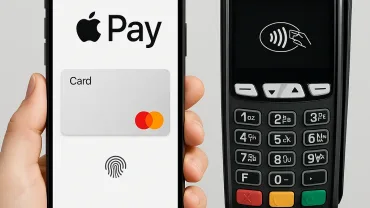Top Tips to Avoid Getting Scammed in Egypt
1. Book with Licensed Tour Operators Only
- Most common scams in Egypt are related to unlicensed tour operators, many of which operate flashy websites or advertise aggressively on social media. To understand how tourists can avoid getting scammed in Egypt, follow these tips for staying safe and enjoying your travels.
- Verify the company through ETAA (Egyptian Travel Agents Association):
- Go to etaa-egypt.org
- Click “Agent Directory” from the menu
- Enter the tour company’s name and hit search
- If licensed, you’ll see official info like company address, chairman’s name, and website. If not—don’t book.
Warning: 99% of unofficial tour websites are run by former employees terminated for misconduct. They may use fake reviews or copied content.
2. Always Ask for an Official Receipt or Confirmation
If you’re booking a tour, buying souvenirs, or paying for services, make sure you get:
- A receipt with company name/logo
- A confirmation email or WhatsApp message with full details
- A breakdown of what’s included (transport, meals, entry tickets)
3. Avoid “Too Good to Be True” Deals
- Extremely cheap tours, Nile cruises, or hotel deals are usually a red flag. Understanding how to avoid getting trapped in scams while in Egypt can save you money and stress.
- Scammers often lure travelers with low prices, then demand more money during the trip or deliver poor-quality services (or none at all).
4. Be Cautious with Taxis and Rides
- Use apps like Uber or Careem in cities like Cairo and Alexandria.
- If using a local taxi:
- Agree on the fare before getting in
- Don’t accept vague responses like “Don’t worry”—insist on a clear price
Common Scam: Overcharging or taking a long route to increase the fare.
5. Watch Out in Tourist Markets (Souks)
- Always negotiate prices—it’s expected.
- Don’t believe claims like “real papyrus,” “authentic alabaster,” or “handmade perfume” without proof or certification. Knowing how to avoid being scammed in Egypt’s tourist markets is crucial for protecting your wallet.
- Be wary of friendly shopkeepers who insist on tea—it’s often a high-pressure sales tactic.
6. Don’t Buy Tickets from “Guides” at Tourist Sites
- Buy entry tickets at official ticket booths only.
- Many scammers pose as “official guides” and then demand big tips or fees later. Awareness of how to avoid getting scammed in tourist traps is important.
- If you want a guide, book through a licensed company, not someone approaching you on the street.
7. Be Skeptical of Overly Friendly Strangers
- Common trick: A stranger starts a friendly conversation, then leads you to a “friend’s” shop or service and expects commission or tips.
- Always politely decline and keep moving.
8. Avoid Sharing Travel Plans Publicly
- Don’t post your itinerary or hotel on social media until after the visit.
- Be cautious of people asking where you’re staying or your travel plans, as this is one way to avoid getting scammed in Egypt.
Final Advice: Trust Your Instincts
If something feels off, it probably is. Be firm but polite, and don’t be afraid to say no.
Summary: How to Stay Safe
| Tip | Why It Matters |
|---|---|
| Book with licensed companies | Protects you legally and financially |
| Verify via ETAA | Confirms legitimacy of tour operators |
| Avoid unofficial taxis | Prevents overcharging |
| Use secure payment methods | Avoids fraud or extortion |
| Say no to pressure | Keeps you in control of your trip |
Enjoy Egypt Safely with Emo Tours
We are ETAA-licensed and committed to honest, high-quality travel experiences. Whether you’re exploring the Pyramids, cruising the Nile, or discovering hidden gems—we’ve got you covered.
Emo Tours Egypt wishes you a safe and magical journey in Egypt! 🇪🇬





Comment (0)